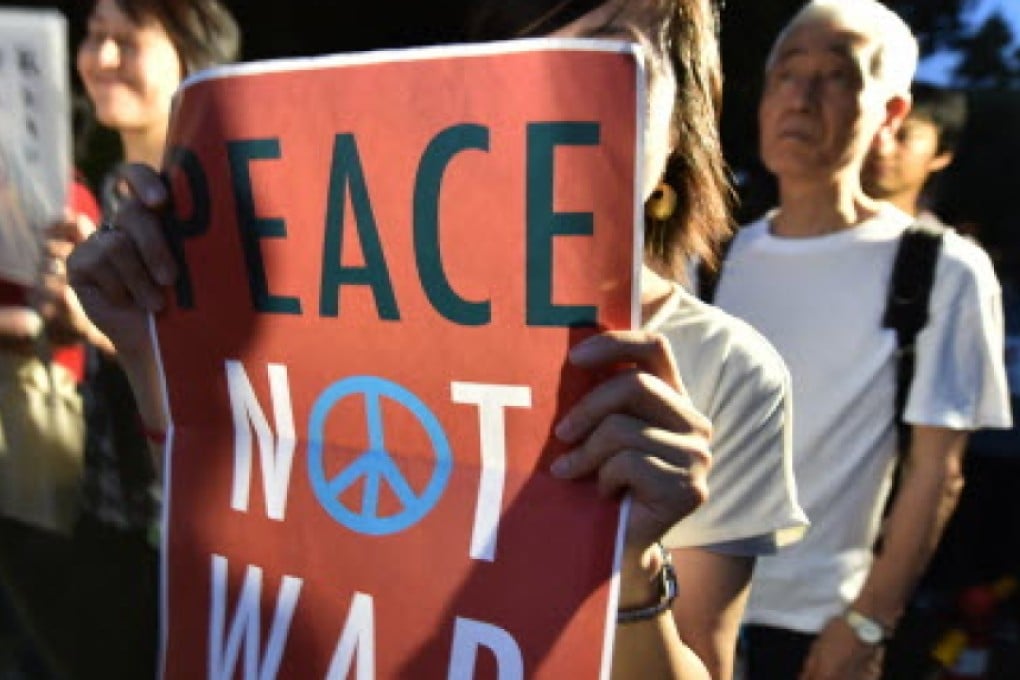Abe redefines peace, never mind what the Japanese people think
Gwynne Dyer says his push to reinterpret the widely supported Article 9 of the country's post-war constitution underlines the degree to which the elite holds sway in Japanese society

Fifty-five years ago, Nobusuke Kishi, Japan's prime minister, resigned just after winning the battle to push the treaty revising the country's military alliance with the United States through parliament. The demonstrations against it were so massive and violent that his political capital was exhausted. Today his grandson, Prime Minister Shinzo Abe, is waging a similar battle, but he will probably get away with it. More's the pity.
Abe, like his grandfather, is on the right of Japanese politics, and his target this time is Article 9 of Japan's post-war "peace constitution". That clause undermines his vision of Japan as a "normal country" (like the US, Britain or France) that sends its troops overseas to fight wars.
The language of Article 9 is clear. It says that "the Japanese people forever renounce war as a sovereign right of the nation and the threat or use of force as means of settling international disputes … land, sea, and air forces, as well as other war potential, will never be maintained". It would take a sharp lawyer to get around that.
Japan is a democracy, but the voters mainly get to choose between members of the '400'
Moreover, it's very hard to change the Japanese constitution. It would take a two-thirds majority in each house of parliament, plus a national referendum, to change or drop Article 9. Abe would certainly lose that referendum, as the majority of Japanese like Article 9 just the way it is.
Those are the opinions of ordinary Japanese, however. They are not so widely held among the elite - and Japan has an elite like few other countries.
A Japanese historian once told me that he reckoned around 400 people - politicians, industrialists and senior bureaucrats - make almost all the decisions in Japan. Moreover, they have been inter-marrying for generations, and are almost all distantly related to one another. Which explains, perhaps, why the grandson of a suspected war criminal is now the prime minister of Japan.
There's an interesting contrast between Kishi, who became minister of munitions in the imperial government in 1941, and Albert Speer, appointed by Hitler as minister of armaments and war production in early 1942. Both men were arrested at war's end, and Speer was sentenced to 20 years in prison.
